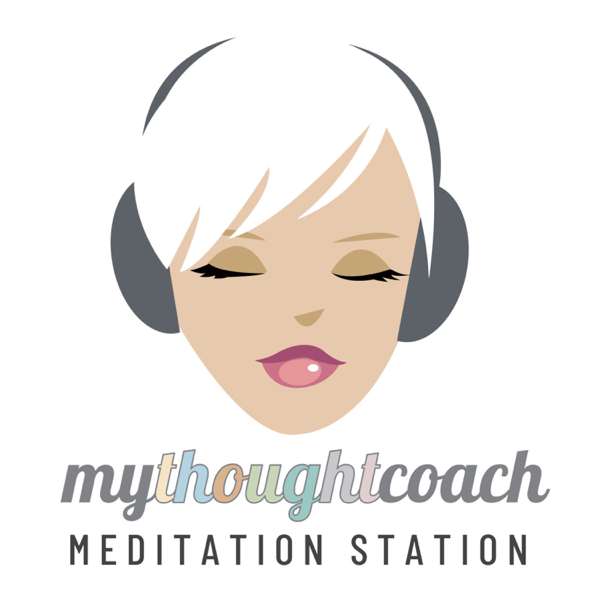Welcome back Paleo View, and Sarah welcome back to the state! (0:41)
Sarah is feeling super jet-lagged. On her trip to Canada, Sarah visited her Dad for a few days. While there she cooked about a month's worth of food for him and reviewed dietary changes.
They also reviewed the details of his medications and how these will impact his life.
Sarah found out that her Dad was actually dead for 10 minutes. He had a widowmaker heart attack and less than a 10% chance of waking up from the medically induced coma. Once he did wake up, he had a minuscule chance of not having a crippling level of brain damage. However, he is fine.
While Sarah's Dad is still recovering and healing from all that happened, he beat all the odds and it is amazing. He is feeling motivated by all that he can do from this point forward.
It was a busy few days with her Dad, followed by a trip to Santa Rosa, California where she gave a presentation for a medical school event.
Sarah is home and trying to get back to Eastern times and into a routine. In a lot of ways, this trip was very stressful.
This week's episode is a science-y one. Postpartum thyroiditis is a topic that Stacy wishes she would have known more about early on in her health journey. Stacy's first thyroid crash when she was done nursing Wesley.
The research Sarah did for this show explained a lot of why she felt the way she did when she was pregnant, and how she felt after birth, and then after weaning.
It was actually because of the way Sarah was feeling after she weaned her youngest daughter that brought her to Paleo in the first place. All of the symptoms she was struggling with were very much hyperthyroid symptoms.
This episode is sponsored by EverlyWell; a brand that Stacy and Sarah love because they provide at-home testing kits for a huge range of lab tests.
Most relevant to this episode, they offer a thyroid panel. For more on the many tests they offer and how the at-home testing works, visit here.
If you get the thyroid test and are looking to understand those results, these podcast episodes (245, 341, 134) would be good resources of information.
Reader Question
Heather's question that sparked today's episode theme: (11:28)
Hey Sarah and Stacy! I love you guys so much and am so grateful to have you and all of the amazingly helpful resources you’ve created as I navigate my life with Hashimoto’s.
My question is this: I’m getting back to exercising after having a baby and am noticing that my heart rate goes wicked high (180, sometimes 190+ when I’m really pushing) during a cardio workout, even if my perceived effort is only a 7 or 8.
I’ve backed off the intensity but am still getting readings into the 170s when my perceived effort is only maybe a 5. (Note: this is based on the readings on the treadmill/elliptical/bike etc. which I know aren’t the most accurate, but until I get a new HR monitoring device it’s all I’ve got).
This is SO FRUSTRATING because I want to push myself but am afraid I may be doing more harm than good.
Is this situation common among people with an autoimmune disease?
All I can find online is that people with this situation should “see their doctor to make sure it’s not something else” (but they never say what the something else is!).
Since so many things are affected by my Hashimoto’s, I can’t help but think it’s playing a factor in this.
PLEASE tell me that this is something I can train back to “normal” or cope with in some way! I NEED to run for my sanity!! Thanks Ladies!
While Stacy does not understand someone who runs, she gets what it is like to feel like you can't do something you love and trying to solve that problem.
Stacy wants to first note that they are going to assume that all of the things like sleep management, sunlight, and grounding are all being incorporated as well.
While these pieces are a lot to put on your to-do list, these are important aspects in hormone health.
The thing that Sarah wants to talk about is that when she sees these symptoms, the first thing she thinks about is postpartum thyroiditis.
Thyroid Health & Pregnancy
On this episode, Sarah is going to share information on how the thyroid changes throughout pregnancy and upon delivery. They will also discuss what postpartum thyroiditis is and who is at risk for it.
Postpartum thyroiditis is a relatively common condition but is rarely diagnosed. However, the sooner you get the diagnosis and start working on the treatment, the more effective that treatment can be.
Sarah does recommend that Heather go to a healthcare provider and talk about these symptoms. She also suggests that Heather brings her thyroid test results with her.
The number one thing to do is to go get your thyroid checked.
Excess thyroid hormone causes heart palpitations and exercise intolerance. This is due to an increase in heart rate and fatigue.
The normal increase in heart rate during exercise is exaggerated with thyroid hormones, which is what Heather is describing.
Rapid heart rate is the most common sign of hyperthyroidism.
During pregnancy, the shift in the immune system puts some autoimmune conditions into remission. For some autoimmune diseases, pregnancy can make them flair. (17:20)
The immune system is changing modes but isn't in remission. The thyroid also changes as a result of pregnancy hormones, which is normal.
Having sufficient thyroid hormones is really important for supporting a healthy pregnancy and a healthy baby.
During the first eleven weeks of pregnancy, it is mostly maternal thyroid hormones that are driving development.
At around eleven weeks, the fetus's thyroid starts to take over producing thyroid hormones.
The two hormones that are driving the change in thyroid function are HCG and estrogen.
HCG accelerates thyroid hormone production. It is increasing the production of thyroid hormone, which results in a slight decrease in thyroid-stimulating hormone. This impacts the feedback loop.
Levels typically return to normal within the second trimester.
Estrogen increases the amount of thyroid hormone-binding proteins.
So we have this stimulation of the thyroid to produce more thyroid hormone, which lowers TSH.
Then we have this increase in thyroid hormone-binding protein, which binds up some of the excess thyroid hormones. This essentially levels out its activities so that levels are not swinging up and down.
If a woman has preexisting Hashimoto thyroiditis you can end up suppressing thyroid hormone, especially in the first trimester.
It is very common for somebody with preexisting Hashimoto thyroiditis to require higher thyroid hormone replacement throughout pregnancy.
Physicians who specialize in this would typically recommend dialing in thyroid hormone replacement doses prior to a woman becoming pregnant.
They would then recommend checking thyroid function as soon as pregnancy is detected. (23:19)
Typically thyroid function would be very closely monitored throughout pregnancy in somebody who goes into pregnancy knowing they have Hashimoto thyroiditis.
They would then get their levels checked every six to eight weeks, but even up to every four weeks depending on how much they are having to adjust the hormone.
Then as soon as the baby is born, the mother would be directed to go right back to her prepregnancy level does of the thyroid hormone she is on.
This is the standard procedure that is done to avoid postpartum thyroiditis that is medication caused.
If somebody has Hashimoto thyroiditis pre-existing and they don't have endocrinologist that is monitoring them throughout pregnancy it can be dangerous.
The combination of not having enough thyroid hormone throughout pregnancy can increase the risk of adverse pregnancy outcomes.
There is also this need to adjust immediately upon birth to avoid going hyper.
Medication & Supplements
It is also worth noting that the iron and calcium in prenatal vitamins inhibit the absorption of thyroid hormone in the gastrointestinal tract.
It is standard operating procedure if you are on hormone replacement to take it at least an hour before even drinking coffee.
Sarah's super pro-tip when it comes to thyroid replacement medication is to put one in a pill bottle next to your bed. This prevents you from taking more than one.
Any mineral supplements shouldn't be taken within four hours of a thyroid hormone dose.
If you are pregnant and taking a prenatal vitamin, Sarah recommends taking that vitamin in the afternoon to separate it from the thyroid hormone.
Postpartum Thyroiditis
Postpartum thyroiditis happens in this one situation of women with preexisting Hashimoto thyroiditis, but it also happens in women who had no idea they had thyroid issues before pregnancy. (28:32)
Studies have shown that women who develop postpartum thyroiditis typically have high concentrations of antithyroid antibodies early in pregnancy.
Antibodies are measurable upon childbirth.
Generally, measurable antibodies would be diagnostic for Hashimoto thyroiditis.
However, in a fairly large percentage of women postpartum thyroiditis might need some treatment to control thyroid hormone levels for a chunk of time. Then the thyroid will sort of return to normal.
What this can mean though is an even higher risk of subsequent postpartum thyroiditis in a subsequent pregnancy. Also, the subsequent risk of developing Hashimoto thyroiditis or a more chronic form of hyperthyroidism.
We know that this condition is sensitive to hormonal shifts. So the most common times to develop Hashimoto thyroiditis is puberty, pregnancy, and menopause.
If you have had postpartum thyroiditis and your thyroid has returned to normal afterward, make sure that you are on guard on what your thyroid is doing as you approach perimenopause.
Postpartum thyroiditis is this very acute level of inflammation but does seem to be driven by autoimmune processes that are enhanced because of the hormonal environment after childbirth.
You get two phases of postpartum thyroiditis.
First, you get a hyper phase, which is what Heather is describing in her question. This means the thyroid is too high. This is a get thee to a doctor time.
The symptoms include things like anxiety, panic attacks, irritability, heart palpitations and rapid heartbeat, unexplained weight loss, increase sensitivity to heat, fatigue, shaking like a tremor, and insomnia.
Typically in postpartum thyroiditis, the hyperthyroid phase lasts one to four months after delivery.
Although, not all women will have a hyperthyroid phase. Some will jump straight into a hypothyroid phase. (32:49)
This is a pendulum swing in the other direction, into an underactive thyroid, which is hypothyroidism.
The classic symptoms include crippling fatigue, increased sensitivity to cold, constipation, unexplained weight gain, dry skin, and typically depression.
The hypo phase of postpartum thyroiditis begins as the hyper starts to go away, which can be anywhere from a few days after birth to a few weeks after birth.
The swing into hypo can last six months up to a year, even a year and a half at most. Some women will never recover from the hypo phase.
While it is less common, some women will have just the hyperthyroid and not actually experience the reactive hypo-phase.
Sarah covered the risk factors and noted that it is really important to be testing thyroid.
Treatment & Care
Graves disease is life-threatening. Hashimoto thyroiditis typically is not, although it is incredibly impactful on the quality of life.
It is really important to dial in diet and lifestyle, but also maintain an openness to conventional medical treatment. Be willing to accept when conventional medical treatment is the best course of action.
Sarah really wants to remind listeners that medication is not a failure.
Stacy reiterated this to listeners. No matter how hard you AIP it, you may still need medical intervention. This is ok, and this is why modern medicine exists.
This is also not an excuse to do the hard work of diet and lifestyle.
The healthiest approach is to prioritize the diet and lifestyle changes that are going to support lifelong health while using conventional medicine judiciously and in an informed way.
It is a matter of using all the tools available to us. (41:29)
We are talking about close medical supervision and frequent thyroid testing, which is why EverlyWell's affordable testing may be a great option for anyone going through this.
It is important to know that needing this close medical supervision and needing to take medication, doesn't make you a failure. It also does not get you off the hook and mean that it is ok to go eat all the fast food.
Closing Thoughts
Stacy thanked Sarah for all of her in-depth science and dose of reality.
What has been interesting for Stacy on her health journey is that she has different thyroid symptoms from Sarah. She technically has thyroid disease, but she doesn't need medication.
Stacy knows that she needs to retest, which is what she plans to do through EverlyWell.
There is a variety of different health conditions, and they impact you differently at different phases in life. (44:54)
The path to healing and health is not linear.
Stacy thanked Sarah for reminding her to check on her health from a numbers perspective.
If you need to do some self-checking, you can do that through EverlyWell and get 15% off your order with the code 'ThePaleoView'.
No matter how nervous you might be about the results, it doesn't actually change what your health condition is by avoiding testing for it.
The testing gives you actionable information.
Thank you again for tuning into this week's episode!
Stacy thanked Sarah for doing all the research she did while jet-lagged, and that we are happy to hear that her Dad is on the path to recovery.
Sarah and Stacy will be back again next week!
Learn more about your ad choices. Visit megaphone.fm/adchoices

 Our TOPPODCAST Picks
Our TOPPODCAST Picks  Stay Connected
Stay Connected







